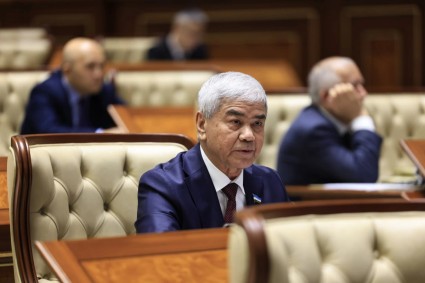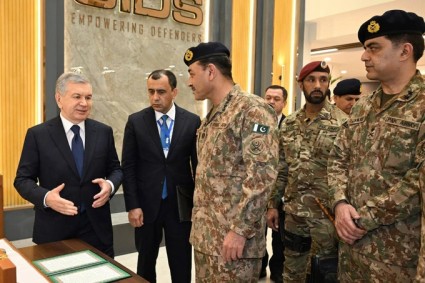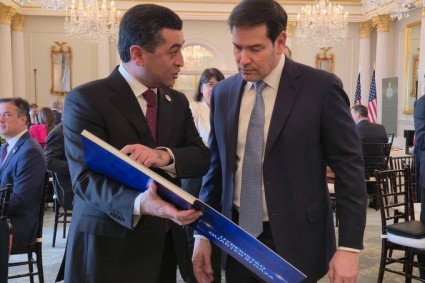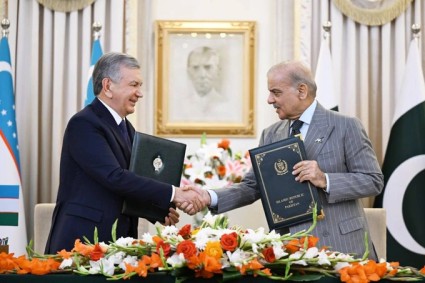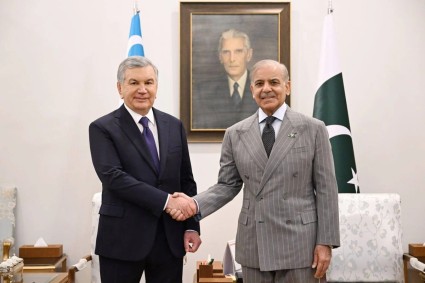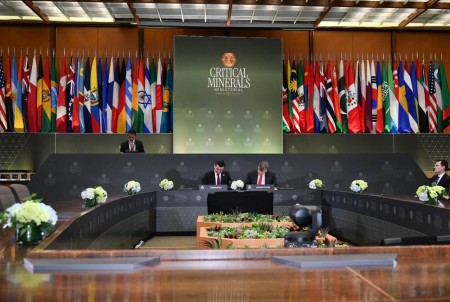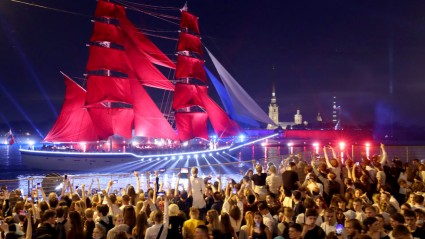The Lead Spokesperson of the European Commission on Foreign Affairs and Security Policy, Peter Stano, at a meeting with journalists from Central Asia, spoke about the political significance of the upcoming EU-Central Asia Summit, why the EU respects the freedom of choice of its partners and what role the countries of the region themselves play in preventing circumvention of sanctions. He also noted the benefits of cooperation with the EU and the benefits of integration for the countries of the region.
About EU-Central Asia Summit
When asked about the upcoming EU-Central Asia Summit with the participation of the leaders of countries of the region and two presidents of the European Union, the spokesperson of the European Commission replied that the Summit should take place this year, but the dates have not yet been determined.
“Usually everything is decided closer to the time of the event. The Summit should take place in Uzbekistan,” he said.
“This Summit is very important from a political point of view. This Summit is an expression of how much we value our partnership and that we are ready to confirm it at the highest political level,” Peter Stano emphasized. “In the world of political statements and diplomacy, this plays a huge role. We do not hold such Summits with everyone. If you look at the European Union's partnerships with countries around the world, there aren't many Summits at the highest level. For example, Ukraine, of course, because for us it is a top priority.”
“This Summit really reflects the dynamics of the relationship and is more symbolic than practical. But the fact that this is happening is a confirmation on both sides of how important we consider our partnership and how determined we are to continue to develop it,” he said.
Peter Stano said that the agenda and date of the Summit will be determined in cooperation with partners.
“The more participants, the more difficult it is. We have 27 countries, and you have five. So trying to find the right date, to provide the right level of representation, is sometimes a logistical challenge. After the elections to the European Parliament, we will have complete clarity on the names of the new heads of institutions, and the mandate of the current council will end at the end of October.”
“On our part, preparation for the Summit will not take much time. And on the part of Central Asia, I do not see any problems that could slow down this preparation. There is interest. I hope that the Summit will still take place this year.”
Peter Stano also answered a number of questions from journalists; Gazeta.uz provides other important quotes from the Spokesperson of the European Commission from this meeting.
On free choice of partners
If you look at your neighbors, you can understand that geography has been very cruel to the region. You cannot erase the geographical and historical ties of your countries. We understand this very clearly. We do not interfere with countries in their free choice of partners. After all, this is what Ukraine is fighting for and why we support it. Every country should have the right to freely choose with whom to develop partnerships.
The situation now is that one of your neighbors or very important partners is violating international rules, and business as usual cannot be done with someone who is so blatantly violating those rules. Because today Ukraine suffers from these violations, and tomorrow it could be Uzbekistan or any other country.
But we don’t want to break your ties with Russia. Our partnerships are not exclusive. We're not saying that if you partner with us, you can't partner with someone else. We know that the world is ultimately transactional. Everyone tries to get the maximum benefit. We are simply saying that we believe in certain principles that work for us. I think they might suit you too.
Look at our experience and think about what kind of interdependence you get by developing relations with the EU, and what disadvantages you get with some other partners who use the coercive method.
We respect the free choice of countries. We have red lines for ourselves, expectations from partners, but we are not going to hold them against you if you decide to continue to work with Russia, because it is in your vital national interest.
We are not trying to impose anything. You yourself know better what meets your national interests. If you want to work with Turkey, Iran, China, Russia, the EU, it’s your decision and no one else’s. The only thing we can say, based on our own experience: whatever you do, think about the following.
Do not create unnecessary interdependencies because they may undermine your independence, your sovereignty or your territorial integrity. And try to diversify your activities as much as possible so as not to depend on only one supplier or one partner. Diversification and avoiding unnecessary interdependencies is the best way to reduce the risks of any unequal relationships.
About sanctions
One of the issues on which we are very principled is the circumvention of sanctions. If someone tries to help Russia circumvent our sanctions, they risk falling under European Union sanctions.
We must be careful with sanctions, because as long as there is a war, there will be sanctions, and as long as there are sanctions, there will be attempts to circumvent them. We can close one bypass loophole, and then another will appear. Private businesses are always one step ahead, they are smart and very flexible. Legislation reacts only after.
Therefore, we need cooperation from the authorities, especially from countries whose territories are used for the re-export of particularly “sensitive” goods that are dual-use goods and are prohibited by our sanctions, but somehow end up in Russia through intermediaries.
The issue of sanctions is under our close attention. And the dynamics depend on the country. When we see the first surge in a country, we establish contacts and interaction begins, the authorities take action, and we can see that there is a downward trend. Or does it go in a cyclical manner: you do something, re-exports fall, and then another opportunity comes along and the numbers rise again. We are trying to fight this both politically and with the help of sanctions and our partners in all economies.
We are now working on the 14th package of sanctions (at the time of publication, the package had already been agreed upon by the EU - ed.) We have already adopted 13 large-scale packages of sanctions, imposing them on everything possible. We are constantly working because there are always some loopholes, or the flexibility and creativity of economic operators brings to light situations that we did not think through when passing the law. That's why we constantly review it.
As an institution, the EU is based on the rule of law. This means that we have a legislative framework, our actions are based on laws and legislation. We can't just sanction someone, punish someone, ban someone or fine someone because we don't like what they do. We must have a legal basis and evidence.
At the same time, we interact with the authorities of the countries where [sanctions circumvention] occurs. Because these countries have more capacity to take preventative measures, they have more power than we do because we are outsiders. If companies are located only in your country and you have your own laws in this area, then you can use them to regulate the activities of these companies. Therefore, every time we see a surge, we go to the country and discuss it with our partners. And we're trying to figure out if we can work together.
About cooperation with the EU
What limitations and opportunities might there be for our partnership? In general, there are no restrictions. It all depends on the desires of both parties. We are ready to cooperate with the countries of Central Asia as deeply as our partners want.
The EU is a transparent, predictable partner, with us you know what you are getting into, what you are signing up for: rules, principles and laws, respect for laws. For anyone involved in business, predictability and transparency are very important because they allow them to plan their investments, benefits, income, processes.
Thus, the restrictions are determined by our partners. On our part, the main limitations are, of course, our principles and values. But they are so universal that almost every country in the world subscribes to them at least formally. These are human rights, a certain level of democracy and freedoms. Of course, we cannot expect everyone to be as free and democratic as we are. We don't want to export or impose our model. We want to promote our principles. This is part of our partnerships. We don't want to force anyone. Do you want to work with us? Great. We are ready to work as closely as possible, as much as you want.
For example, in the past we were close to signing an Association Agreement with Armenia, as well as with some other Eastern Partnership countries. Then at some point Armenia changed its decision and they took a step towards the Eurasian Union. The European Union accepted this and our partnership was reduced. We have developed a different type of agreement, not as close, not as comprehensive. We focus on the level of ambition of our partners.
Today Armenia again says it wants more cooperation with the European Union. Therefore, we are discussing how to improve the current partnership. It all depends on the wishes of the partners.
About benefits of integration for the region
Look where regional integration has brought us. We have Schengen, the free movement of people over a vast area from Estonia to Portugal, throughout the European continent, without having to show identification, without having to stop at borders. We have a single currency. You no longer need to change money, no longer lose money on fees and exchanges, and no longer have five different wallets to store different currencies. We have the same rights everywhere in the EU, we can work, study, travel, do whatever we want. We can receive medical care in any country in the European Union.
Integration has absolutely amazing benefits for everyone, for the entire population. And in fact, integration is the answer to all the problems you face. After all, another EU slogan is “Together we are stronger.” You solve problems better when you work together. In Europe we are very diverse in terms of languages, ethnicities, nations, historical contexts and experiences. Central Asia is relatively more compact compared to Europe. Therefore, you have all the natural prerequisites [for integration]. Of course, you have historical problems, mostly bilateral between countries. But, again, remember, Germany and France have been killing each other for centuries. Today we laugh together.
Integration is what is needed because it eliminates artificial boundaries between nations, between groups of people. And it allows you to grow together, enriching your identity at the expense of others. It is based on respect, and that is what we support in the case of Central Asia.
Integration can benefit people by overcoming all the age-old conflicts and differences and allowing them to work together.
About the future of the EU
When asked by one of the journalists whether he had concerns about the future of the EU if forces opposed to European integration came to power, Peter Stano replied that any decision would be an expression of the will of the people.
“The European Union is not a model imposed from above, from Brussels, or by politicians. The EU was founded by member countries for their citizens. Initially, the idea was to prevent wars by establishing economic cooperation, so that we could have peace, so that countries would cooperate and not fight with each other,” he said
“The European Union has always been a project for the people, and the people themselves determine its structure. So if the far right or the far left, or any other anti-system or alternative parties, form governments and gain a majority in the EU, perhaps they will take the European Union in a different direction than it is going now, but that will be a reflection of the will of the people. We in Brussels, the institutions, serve the member countries, and the member countries are represented by governments that are elected by the citizens. So whatever the citizens want, they will get,” Peter Stano emphasized.
He added that he is not worried about the future of the EU because ultimately the EU reflects the wishes of its people. “This is the nature of democracy, which must be respected,” the EC spokesperson said.

